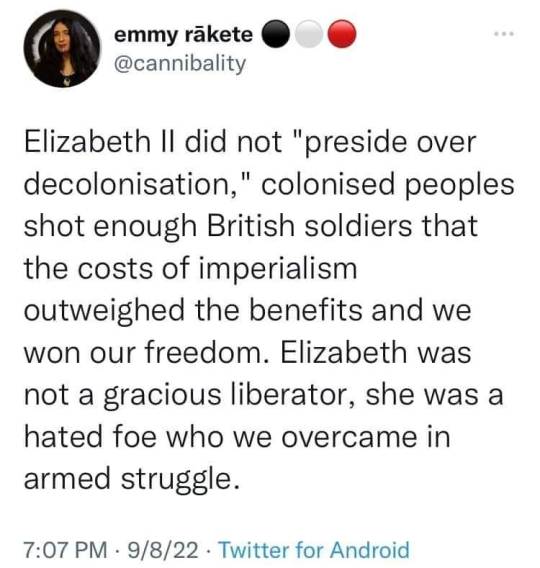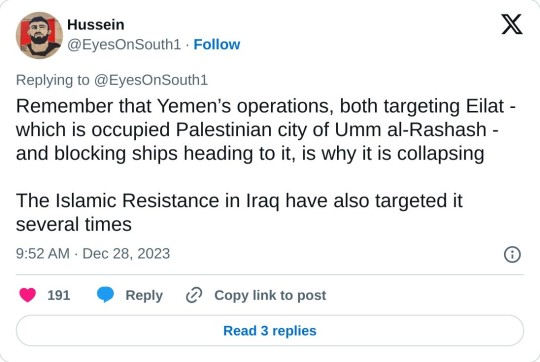#Decolonisation
Text
This is the most popular shirt design in my fundraiser:


The most popular designs for stickers and pins:
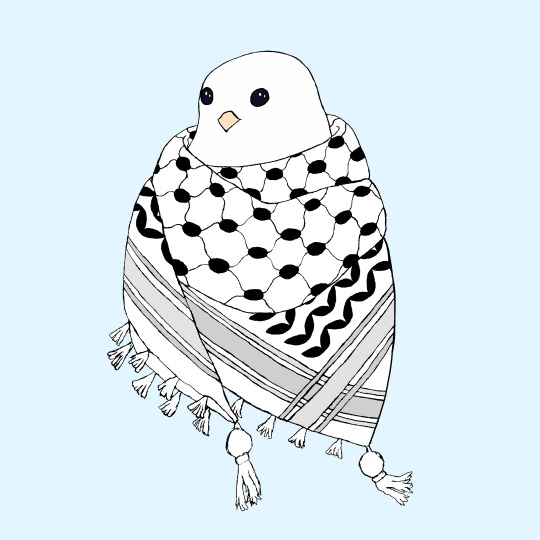



And here is the most popular design for bags and notebooks:
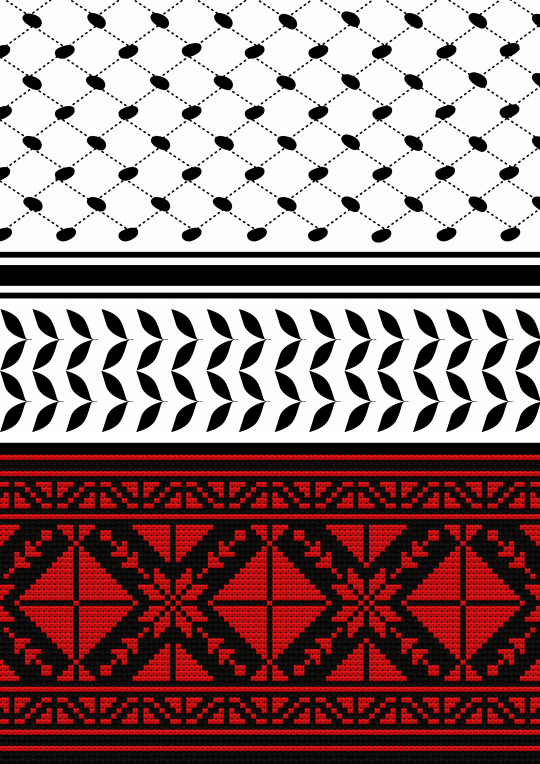


Making new art is starting to hit diminishing returns, so I am going to try to spend a little more time promoting my existing work. I will still be making new stuff, just a little slower. I currently have 168 designs, each available across a wide range of products. You can find my full shop here. To see a design on different products click on the display product and scroll down or go here to browse by design.
I started doing this around the end of October/start of November and I've improved a lot at design in this time. I deleted all my older art and my shop is now a full time fundraiser for my best friend, who is Palestinian and the sweetest person in the world. It has been heartbreaking watching him suffer, I am attempting to help provide a little financial security for his family at least. We are grad students so we don't earn very much (speaking of grad school, go protest! There are protests at so many universities right now, please join one!).
I honestly didn't expect this shop to get much response, I'd only had it a few months and I'd never sold a single product before I started making designs about Palestine. I'm super touched by all the support we have received. I know there are lots of bigger, more official and more important fundraisers out there, but this was all I could think to do for my friend while still protecting his privacy. I'm very grateful you all have given me the means help this wonderful person and I'm so happy to see people using my art to promote the cause further. Thank you!
#palestine#free palestine#gaza#free gaza#save palestine#فلسطين#gaza strip#colonialism#decolonisation#human rights#social justice#middle east#art for palestine#artists for palestine#artists for ceasefire#ceasefire#shirt design#stickers#sticker shop
20 notes
·
View notes
Text
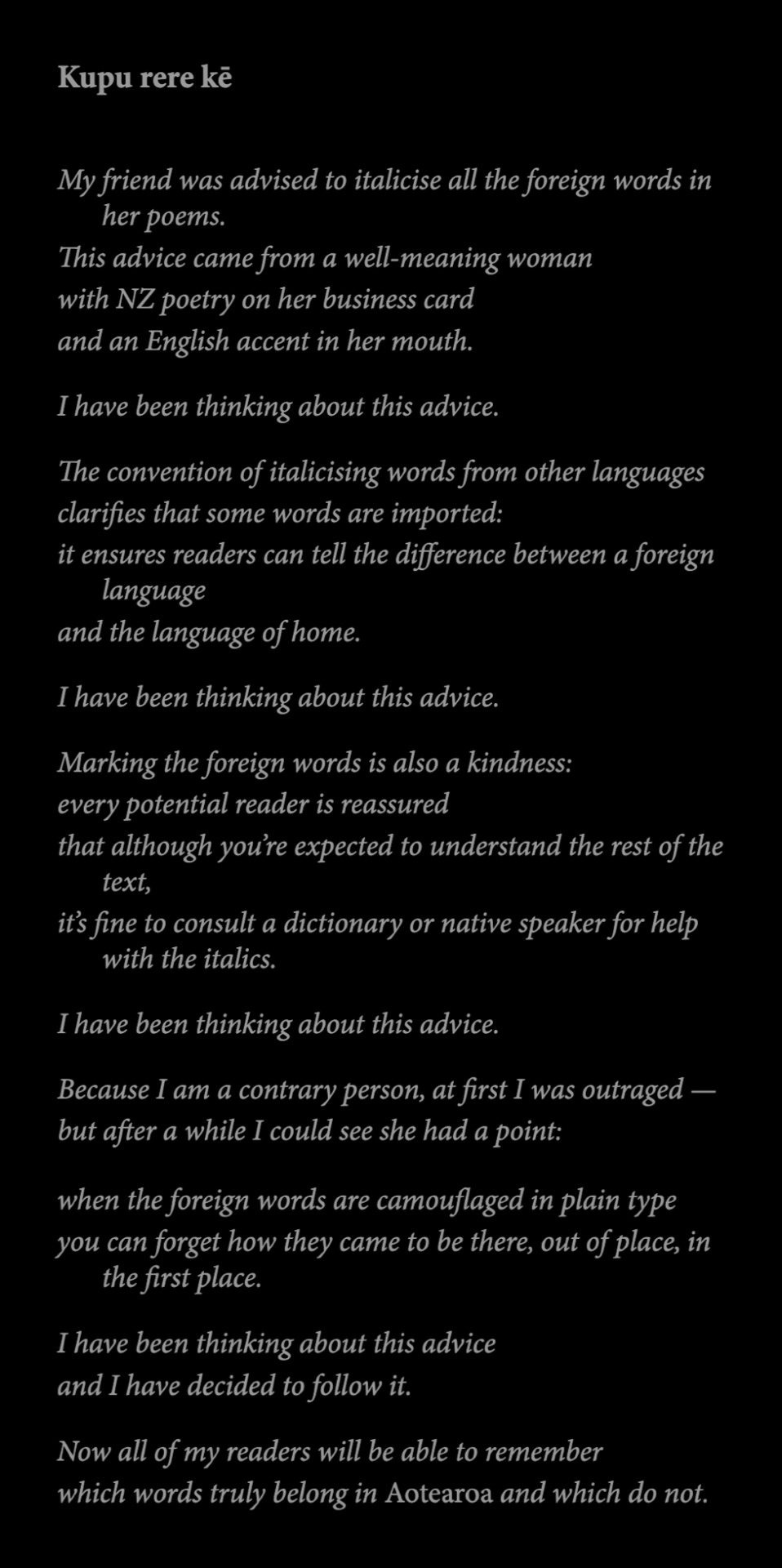
Alice Te Punga Somerville, Always Italicise: How to Write While Colonised - Kupu rere kē
[ID: A poem titled: Kupu rere kē. [in italics] My friend was advised to italicise all the foreign words in her poems. This advice came from a well-meaning woman with NZ poetry on her business card and an English accent in her mouth. I have been thinking about this advice. The convention of italicising words from other languages clarifies that some words are imported: it ensures readers can tell the difference between a foreign language and the language of home. I have been thinking about this advice. Marking the foreign words is also a kindness: every potential reader is reassured that although you're expected to understand the rest of the text, it's fine to consult a dictionary or native speaker for help with the italics. I have been thinking about this advice. Because I am a contrary person, at first I was outraged — but after a while I could see she had a point: when the foreign words are camouflaged in plain type you can forget how they came to be there, out of place, in the first place. I have been thinking about this advice and I have decided to follow it. Now all of my readers will be able to remember which words truly belong in -[end italics]- Aotearoa -[italics]- and which do not.
Next image is the futurama meme: to shreds you say...]
(Image ID by @bisexualshakespeare)

#powerful right off the bat#Alice Te Punga Somerville#Always Italicise#Always Italicise: How to Write While Colonised#new zealand poem#Always Italicise How to Write While Colonised#Kupu rere kē#aotearoa#quote#quotes#poem#poetry#Māori poetry#Māori#colonization#colonisation#Decolonisation#Te reo māori#Decolonization#new zealand#new zealand poetry
76K notes
·
View notes
Text
i do not pity israel. never have, and never will.
each night that gaza experiences is deadlier than the last, as idf soldiers record propaganda tiktoks, make rave parties and grwms and fit checks, gloat over having food and water, and film themselves deriving sadistic pleasure from torturing their hostages and victims and desecrating the dead.
Palestinians have to display their martyred before the camera for you to believe the atrocities that the zionist entity has subjected them to. they cannot even mourn in private. the apartheid entity murders them in cold blood, and you deliver the killing blow by doubting them.
babies whose families have been killed will never get to know their own name.
i can't reshare a tenth of the videos and photos that cross my timeline. i have seen more dead children in the past month than i have known death my entire life.
israeli settlers burn olive trees, bomb bakeries and fishing boats, shower white phosphorus and earthquake bombs on the captive civilians of gaza. you already know about the disastrous effects of white phosphorus, but earthquake bombs were last used during ww2 to wipe out entire cities.
how holy is the land that seeks to be built over the mass graves of thousands of children? is it holier than the miracle of a child being born in this hypocritical world?
all 11 universities in gaza have been bombed. academics should be agitating right now, especially those who call themselves "decolonial thinkers." destruction of universities is a sinisterly deliberate act to sabotage the Palestinians who will survive this great catastrophe.
the act of cleansing your hands before prayer is extremely important to muslims. no part of us can remotely comprehend the grief of the mother who refused to wash her hands from the blood of her children after losing them in a zionist airstrike over gaza. "I swear I won't wash them, I won't wash my hands, how else am I supposed to sleep near my kids."
it is only both moral and right when one side defends itself. the other side are the price of war, no better than insects and cattle and sheep left to die within the four walls of the slaughterhouse.
this situation should not be up for debate, but let me finish with one final thing : do your research about Palestine. HOWEVER. you do not need a degree in middle east studies to object to an ongoing genocide. if someone outwits you in a debate about historical details and every nuance of a subject, you were and will remain entirely correct in objecting to a genocide.
may those martyred rest in peace and be reunited again with their loved ones in heaven's eternal vastness.
DO NOT STOP TALKING ABOUT PALESTINE.
glory to Palestinian resistance. from the river to the sea, Palestine will be free.
#free palestine#palestine#gaza#free gaza#gaza under attack#gaza genocide#genocide#decolonisation#gaza strip#from the river to the sea palestine will be free
47K notes
·
View notes
Text
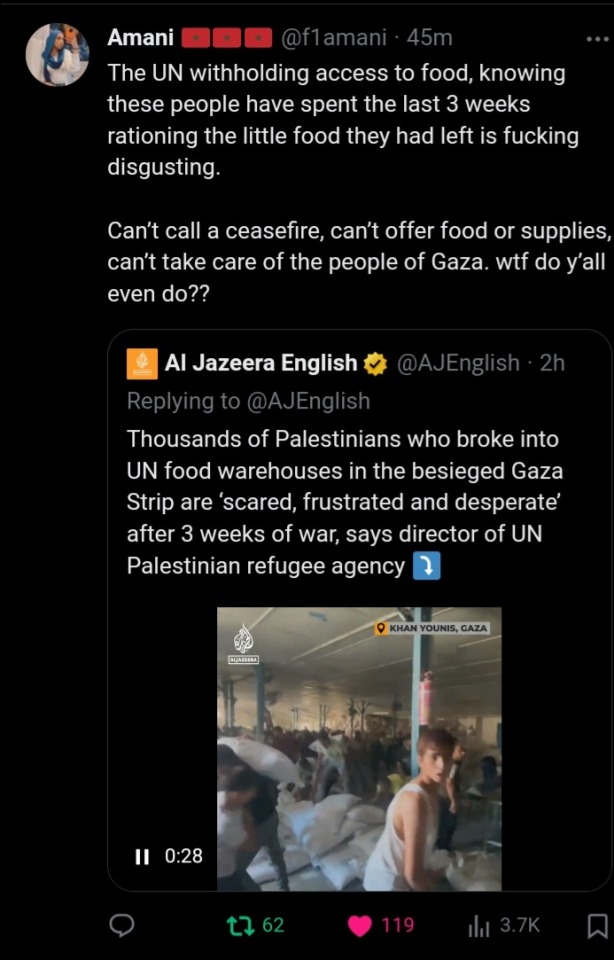
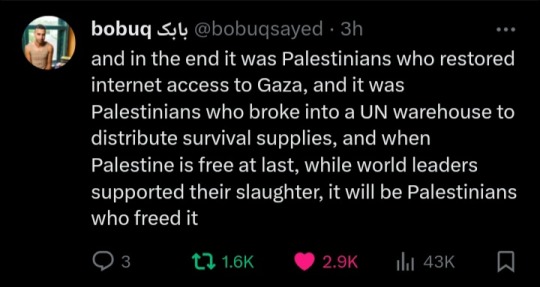
32K notes
·
View notes
Text
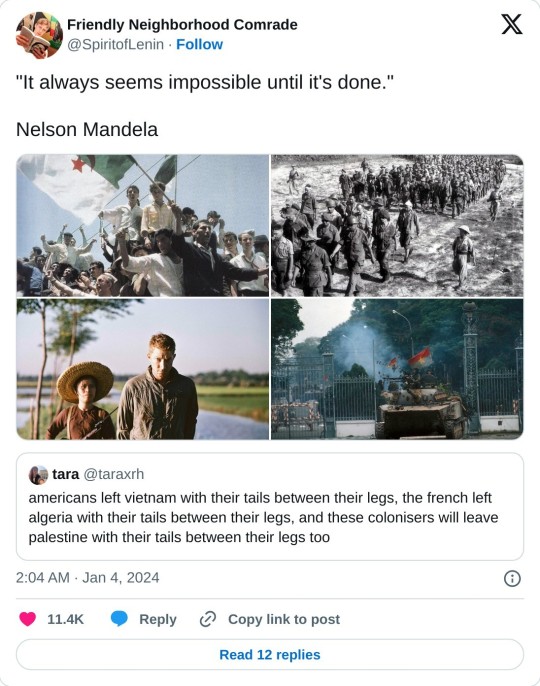




#yemen#jerusalem#tel aviv#current events#palestine#free palestine#gaza#free gaza#news on gaza#palestine news#news update#war news#war on gaza#palestinian resistance#liberation#decolonisation
18K notes
·
View notes
Text

this is a jewish leftist and antizionist reading list steering entirely clear of zionists or normalizing publishers. there is a form for suggestions. posted by chaiya_redacted
2K notes
·
View notes
Text
🇵🇸 IMPORTANT ICJ UPDATE🇵🇸
This starts today, 19th February 2024 and continues until Next Monday 26th February 2024. See times below, they will all be streamed everyday live here or here on Al Jazeera Live
"The International Court of Justice in The Hague will hear from 52 countries and three organisations on the legal consequences of Israel’s occupation of the West Bank, Gaza and East Jerusalem since 1967." from Al Jazeera English, 19/Feb/2024:


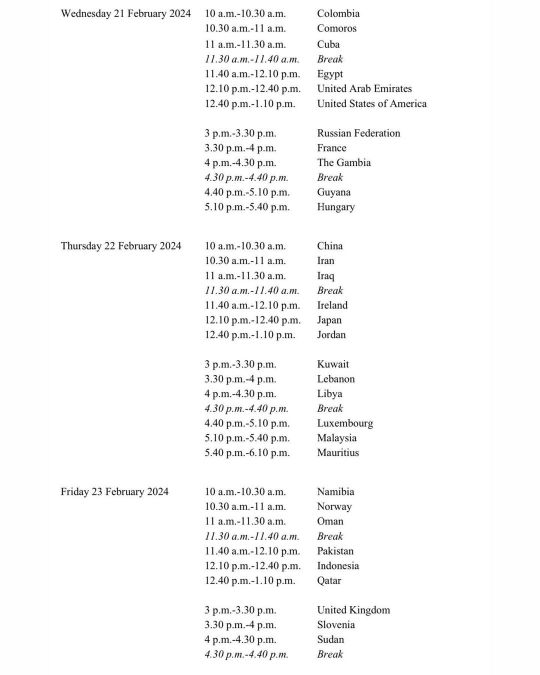

#icj#icj hearing#icj case#icj ruling#icj genocide case#international court of justice#palestine#free palestine#gaza#free gaza#from the river to the sea palestine will be free#rafah#save rafah#i stand with palestine#human rights#colonialism#colonization#settler colonialism#decolonise palestine#decolonisation#feminism#feminist
942 notes
·
View notes
Text
Look and listen to the people who unequivocally support Palestine, who are condemning Israel's actions.
And you'll find a pattern.
From Nelson Mandela, Malcom X, to Ireland, to South Africa, native Americans and other indigenous people.
People who have been oppressed.
People who have suffered at the hands of colonial powers.
People who are still suffering and raise their hands in solidarity with Palestine.
Because they know, they understand.
They are people who are fighting for their rights on their own land, and see the same struggle.
Who are the main people siding with Israel?
The US and Britain who are historically and presently the oppressors.
The colonisers.
This is the oppressors and the oppressed.
The coloniser and the colonised.
Because this isn't a war.
It is a genocide.
1K notes
·
View notes
Text
Boycotts and sanctions have limited effect. They're especially useless against countries, that have built their economies around being mostly independent from foreign investment (e.g. Russia).
Where they do work though, is when they're leveraged against our allies - countries whose economies are very much tied to the west. This is how apartheid South Africa fell and it's how apartheid Israel might fall.
We probably won't see any sanctions coming from the west any time soon. At least not without putting pressure on our representatives. In the mean time here's a list of companies that have the highest stake in the suffering of Palestinians. Please refrain from purchasing products of Israel and especially products from these companies.
Don't be neutral in the face of fascism. Don't be neutral in the face of 75 years of oppression, settler colonialism and genocide. Fight for Palestine and fight for human rights in any way you can.
#palestine#boycott israel#boycott divest sanction#bds movement#free palestine#human rights#politics#5h4d;oc#colonialism#decolonisation#anti zionisim#israel#free gaza#gaza#gaza strip
2K notes
·
View notes
Text

Palestine will be free. (frantz fanon, the wretched of the earth)
#palestine#فلسطين#I’ve been off tumblr again because I’ve been dealing with death threats and a lot of other things from fucking zionists#decolonisation#this is literally what decolonisation looks like#it is exhausting constantly having to educate and deal with misinformation on the genocide of your own blood#thank you tumblr for uplifting Palestinian voices#writings#frantz fanon#the wretched of the earth
2K notes
·
View notes
Text
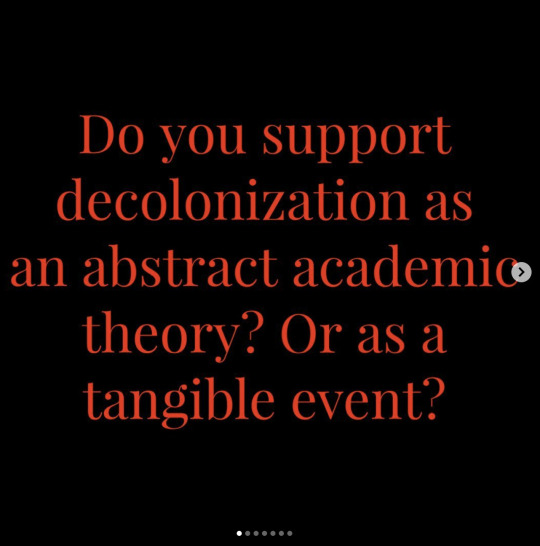
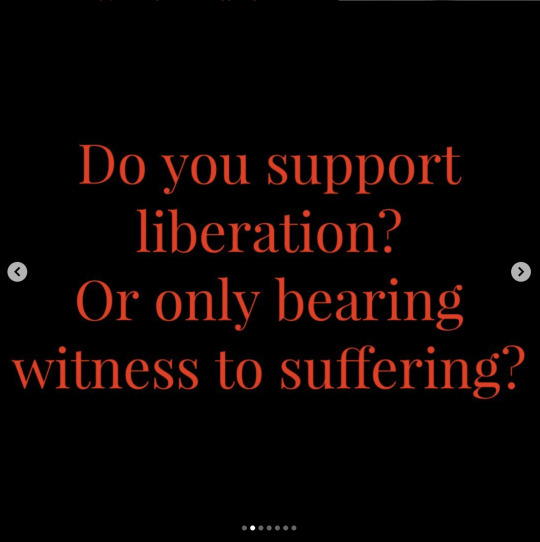

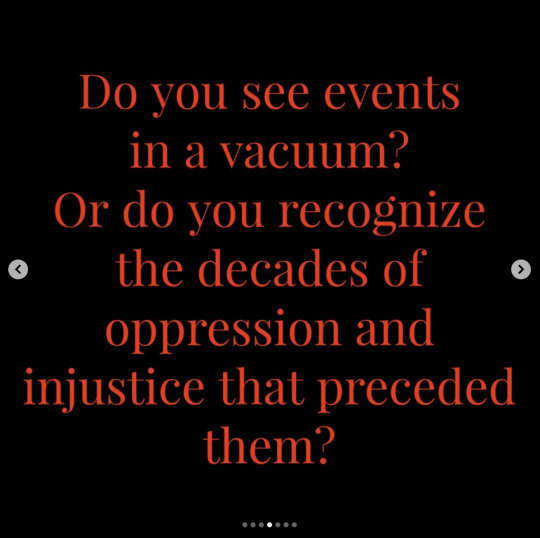


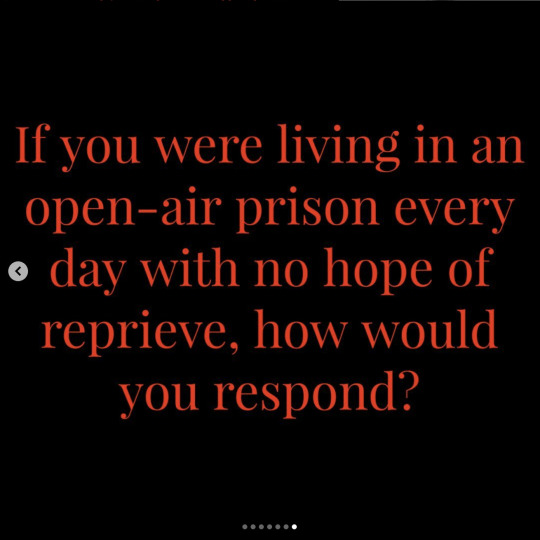
"Questions to keep in mind with the coming news cycle."
Reposting this from @ savesheikhjarrahnow on ig.
Prepare yourself for a torrent of pro-Zionist colonial lies and obfuscations in the Western news. Do what you can to counteract it. Palestine needs your help, now more than ever.
From the river to the sea, Palestine will be free!!! 🇵🇸🇵🇸🇵🇸
#decolonisation#decolonization#decolonialism#decolonize#palestine#free palestine#palestinian resistance#indigenous#zionism#indigeneity#landback#colonialism
2K notes
·
View notes
Text
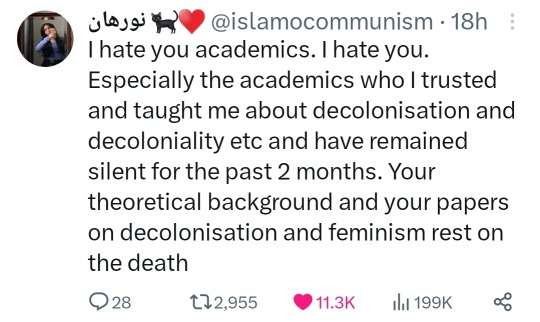
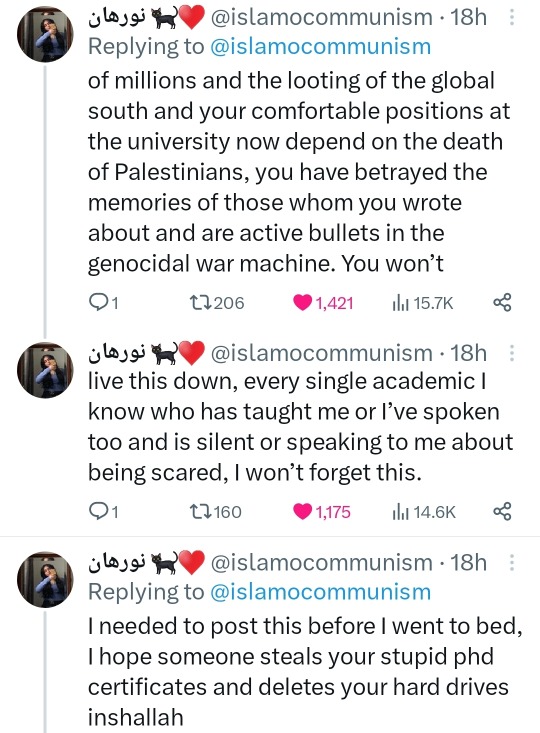
#feminist#feminism#social justice#free palestine#freepalastine🇵🇸#palestine#free gaza#gaza#gaza strip#education#university#academic industrial complex#intersectional social justice#intersectional feminism#intersectionality#decolonisation
809 notes
·
View notes
Text
"every zionist accusation is a confession"

well, this actually happened to a Palestinian child in the Deir Yassin massacre of 1948. here's an eye-witness account :
FULL DOCUMENTARY HERE.
#palestine#gaza#free palestine#from the river to the sea palestine will be free#decolonisation#child death#tw child death
10K notes
·
View notes
Text
DECOLONIAL ACTION READING
I recently compiled these to add to a comrade’s post about Land Back, but actually I think they deserve their own post as well.
Amílcar Cabral - Return To The Source
Frantz Fanon - The Wretched Of The Earth
Hô Chí Minh - archive via Marxists.org
Thomas King - The Inconvenient Indian
Abdullah Öcalan - Women’s Revolution & Democratic Confederalism
Edward Said - The Question Of Palestine
Thomas Sankara - archive via Marxists.org
Eve Tuck & K. Wayne Yang - Decolonization Is Not A Metaphor
Other key names in postcolonial theory and its practical application include:
Sara Ahmed
Homi K. Bhabha
Aimé Césaire
Albert Memmi
Jean-Paul Sartre
Léopold Séder Senghor
Gayatri Chakravorty Spivak
All of these will help you interpret and confront the realities of colonisation, and ideally help us understand and extend solidarity to comrades around the globe. Decolonise your mind, and don't stop there!
#land back#postcolonial#postcolonialism#postcolonial theory#decolonization#decolonize#decolonise#decolonisation#Edward Said#Tuck & Yang#Frantz Fanon#Amilcar Cabral#Free Ocalan#Sankara#Ho Chi Minh#Thomas Sankara#Abdullah Ocalan#original#Thomas King#Eve Tuck#K. Wayne Yang
2K notes
·
View notes
